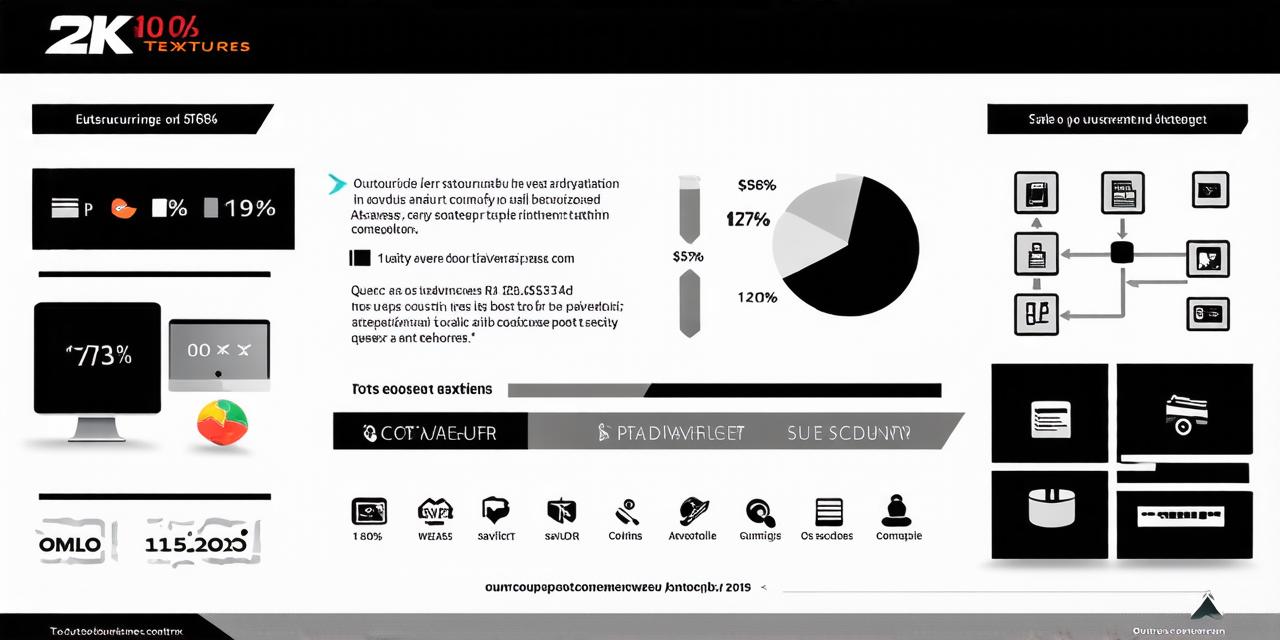Advantages of Outsourcing
- Cost Savings: One of the primary reasons businesses outsource is to reduce costs. By outsourcing tasks to vendors in lower-cost countries, companies can save on labor and overhead expenses.
- Improved Efficiency: Outsourcing allows businesses to focus on their core competencies while leaving non-core tasks to external vendors. This can free up time and resources for other critical business activities.
- Access to Specialized Skills and Expertise: By working with external vendors, businesses can gain access to specialized skills and expertise that they may not have in-house. This can help companies stay up-to-date with the latest industry trends and technologies.
- Flexibility: Outsourcing can provide businesses with more flexibility in terms of staffing and resources. Companies can scale up or down their outsourcing efforts depending on their needs, allowing them to be more agile and responsive to changing market conditions.
- Improved Quality: Outsourcing can also lead to improved quality in certain tasks. For example, an accounting firm may outsource its bookkeeping to an external vendor that specializes in bookkeeping and has a proven track record of accuracy and efficiency.
Disadvantages of Outsourcing
- Lack of Control: One of the biggest disadvantages of outsourcing is the lack of control that businesses have over external vendors. This can lead to issues with communication, quality control, and delivery times.
- Security Risks: Outsourcing also comes with security risks. By working with external vendors, businesses expose themselves to potential data breaches and other security threats. This can be especially problematic for companies that handle sensitive information, such as financial or healthcare providers.
- Cultural Differences: When working with vendors in different countries, businesses may encounter cultural differences that can lead to misunderstandings and miscommunications. For example, a business based in the United States may have different communication styles than a vendor based in India.
- Language Barriers: Communication barriers can also be an issue when outsourcing tasks to vendors in different countries. Businesses may struggle to communicate effectively with vendors who do not speak their native language fluently. This can lead to misunderstandings and delays in project delivery.
- Long-Term Costs: While outsourcing can provide cost savings in the short term, it can also be more expensive in the long run. Businesses may end up paying more for outsourced services over time due to increased overhead costs, such as travel expenses and training costs.

FAQs
1. What are some of the common tasks that businesses outsource? Some common tasks that businesses outsource include customer service, accounting, marketing, software development, and IT support.
2. How do I choose the right vendor for my outsourcing needs? To choose the right vendor, businesses should consider factors such as the vendor’s experience, track record, communication style, and pricing. It is also important to evaluate vendors based on their ability to meet the specific needs of your business.
3. What are some of the risks associated with outsourcing? Some of the risks associated with outsourcing include lack of control, security risks, cultural differences, language barriers, and long-term costs.
4. How can businesses mitigate these risks when outsourcing? To mitigate these risks, businesses should establish clear communication channels with their vendors, implement strong security measures, work with vendors who have a proven track record, and evaluate vendors based on their ability to meet the specific needs of your business.
5. Is outsourcing right for my business? Whether outsourcing is right for your business will depend on your specific goals and objectives. If you need to reduce costs, improve efficiency, gain access to specialized skills and expertise, or increase flexibility, outsourcing may be a viable option. However, if you have tight control over your operations, handle sensitive information, or have unique communication styles, outsourcing may not be the best choice for your business.
Conclusion
Outsourcing is a powerful tool that can help businesses reduce costs, improve efficiency, gain access to specialized skills and expertise, and increase flexibility. However, it also comes with its own set of advantages and disadvantages. To make an informed decision about whether outsourcing is right for your business, it is important to weigh the pros and cons and evaluate vendors based on their ability to meet the specific needs of your business. By doing so, you can make the most of outsourcing and take your business to the next level.
